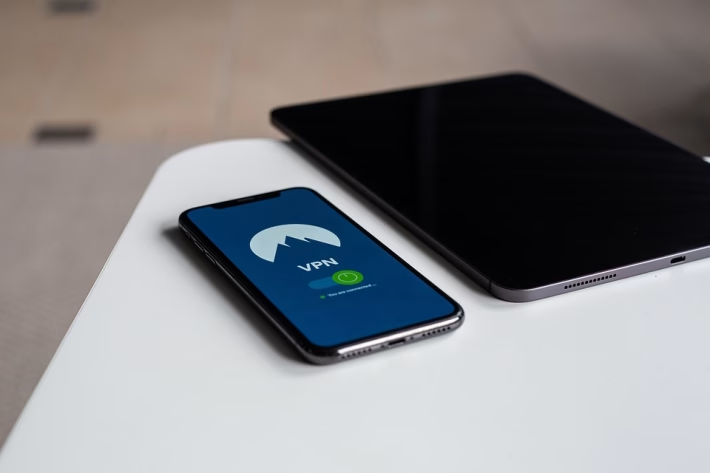Your Privacy Matters: Essential VPNs for Secure Browsing in the Digital Age

Introduction: Why Security and Privacy Matter Today
In the digital era, where information flows freely and businesses are more connected than ever, the importance of security and privacy cannot be overstated. With the rise of remote work, increasing digital transactions, and the proliferation of IoT devices, individuals and organizations face unprecedented vulnerabilities. Cyber threats have become a primary concern, impacting personal lives, businesses, and even national security.
Effective cybersecurity is essential to safeguard sensitive information from cyberattacks, data breaches, and identity theft. As we navigate through 2025, understanding the current landscape of threats, tools available for protection, and best practices is key to maintaining security and privacy in a complex digital world.
Overview: The Risks Businesses and Individuals Face
Cyberattacks
Cyberattacks have evolved dramatically in sophistication, with attacks like ransomware targeting both large corporations and small businesses alike. In 2025, the frequency and severity of these attacks continue to increase. Cybercriminals employ advanced techniques including phishing, malware, and distributed denial-of-service (DDoS) attacks to exploit vulnerabilities.
Data Leaks
Data breaches remain a pressing threat, with an alarming number of records exposed every year. Whether attributed to malicious hacking or inadvertent employee error, data leaks compromise sensitive information that can lead to financial loss and reputational damage. The biggest breaches often involve customer data, intellectual property, or personal details, which can have lasting consequences.
Identity Theft
Identity theft remains one of the most pervasive threats in the digital landscape, affecting millions of individuals each year. Cybercriminals utilize stolen data for fraudulent activities, often leading to severe financial implications for the victims. Awareness and preventive measures are crucial in combating identity theft in 2025.
Best Tools for Cybersecurity in 2025
Here are some of the most effective cybersecurity tools for individuals and businesses to consider investing in:
1. Best Antivirus Software 2025: Norton 360
- Features: Real-time protection, VPN, password manager, dark web monitoring.
- Pricing: Starts at $39.99/year.
- Pros: Comprehensive protection, extra features.
- Cons: Can be resource-intensive.
2. Top VPN for Privacy: ExpressVPN
- Features: High-speed connections, 3000+ servers, split tunneling, no-logs policy.
- Pricing: $8.32/month (billed annually).
- Pros: Excellent speed, robust security features.
- Cons: Higher price point compared to competitors.
3. Secure Cloud Storage 2025: Tresorit
- Features: End-to-end encryption, multi-device synchronization, collaboration tools.
- Pricing: Starts at $12/month.
- Pros: Strong privacy features, ideal for businesses.
- Cons: Limited free storage.
4. Password Manager: LastPass
- Features: Password generator, secure vault, autofill capabilities.
- Pricing: Free tier available; Premium at $3/month.
- Pros: User-friendly interface, compatibility across devices.
- Cons: Security breaches in the past.
5. Multi-Factor Authentication: Authy
- Features: Easy setup, backup codes, cloud backup.
- Pricing: Free.
- Pros: Enhances security significantly.
- Cons: Requires additional setup.
6. Email Security: Mimecast
- Features: Email filtering, malware detection, phishing protection.
- Pricing: Starts at $5/user/month.
- Pros: Effective against sophisticated threats.
- Cons: May require technical knowledge for setup.
7. Firewall: ZoneAlarm
- Features: Network protection, identity theft protection, mobile security.
- Pricing: Free version available; Pro version at $39.95/year.
- Pros: Comprehensive features and user-friendly.
- Cons: May conflict with other security software.
8. Endpoint Protection: CrowdStrike Falcon
- Features: AI-driven threat detection, response capabilities.
- Pricing: Custom pricing based on needs.
- Pros: Advanced protection for businesses.
- Cons: High cost for small businesses.
Best Practices: Step-By-Step Methods to Improve Security and Privacy
-
Regular Software Updates: Ensure all software, including antivirus and applications, are updated regularly to patch vulnerabilities.
-
Use Strong Passwords: Create complex passwords and utilize a password manager to keep track of them.
-
Enable Multi-Factor Authentication (MFA): Add an extra layer of security to your accounts by requiring a second form of verification.
-
Educate Employees: Conduct regular training sessions to raise awareness about phishing scams and other security threats.
-
Backup Data: Regularly backup crucial data to secure cloud storage or a physical drive to prevent loss in case of an incident.
- Limit Access: Implement the principle of least privilege by restricting user access to sensitive information.
Industry Trends: Insights into Current or Upcoming Cybersecurity Trends in 2025
-
AI and Machine Learning: The use of AI and machine learning in cybersecurity is set to grow. These technologies help identify abnormalities in network behavior, allowing for timely interventions.
-
Zero Trust Security: Organizations are increasingly adopting the Zero Trust model, which assumes that malicious actors can be inside or outside the network. This model minimizes trust levels and emphasizes continuous verification.
-
Secure Access Service Edge (SASE): Combining networking and security services in a single cloud-based service model, SASE supports remote workforces effectively, making security more efficient.
- Regulatory Compliance: As legislation around data protection tightens, organizations will need to invest in compliance technologies and strategies to avoid hefty fines and consumer distrust.
Case Studies / Examples: Real-World Security Breaches and Lessons Learned
Case Study 1: SolarWinds Hack
The 2020 SolarWinds hack was a significant wake-up call for many organizations. Attackers exploited software updates to infiltrate major corporations and government agencies. The lessons learned include the necessity for comprehensive supply chain risk management and multi-layered defense mechanisms.
Case Study 2: Facebook Data Breach
In 2019, Facebook faced scrutiny over a data leak exposing the information of nearly 540 million users. This case emphasizes the importance of transparency, user consent, and robust security measures to protect user data.
Comparisons: How Leading Tools Differ in Protection, Pricing, and Usability
When selecting cybersecurity software, consider the differences between tools available:
-
Antivirus: Norton 360 offers diverse services, while alternatives like Bitdefender focus on ease of use. Price varies significantly based on features.
-
VPNs: ExpressVPN is renowned for speed, but options like NordVPN are equally robust and provide more affordable plans.
- Password Managers: While LastPass offers a strong free tier, premium options like 1Password provide advanced features like travel mode, but at a higher cost.
This comparative analysis will help readers choose the right tool that fits both their budget and operational needs.
Pros & Cons: Balanced Evaluation for Informed Decisions
Pros of Investing in Cybersecurity Tools
- Enhanced Protection: Comprehensive tools safeguard against various threats.
- Peace of Mind: Knowing your data is secure can alleviate anxiety.
- Compliance: Helps meet regulatory requirements, avoiding fines.
Cons of Investing in Cybersecurity Tools
- Cost: Quality cybersecurity can be expensive, impacting smaller budgets.
- Complexity: Some tools may require technical expertise to utilize effectively.
- Over-Reliance: Dependence on tools may lead to complacency in basic security hygiene.
FAQs
-
What is the best antivirus software for 2025?
- Norton 360 is highly recommended for comprehensive protection.
-
Which VPN is safest?
- ExpressVPN is widely recognized for its strong privacy features and no-logs policy.
-
How to secure business data?
- Employ strong passwords, use encryption, and ensure regular training for employees.
-
Can I use free antivirus software?
- Yes, free options like Avast can provide basic security, but they may lack comprehensive features.
- What is a secure cloud storage option?
- Tresorit offers outstanding privacy features with end-to-end encryption.
Conclusion: Final Thoughts with Practical Advice
In today’s rapidly evolving digital landscape, prioritizing cybersecurity is vital for individuals and businesses alike. As cyber threats become more sophisticated, investing in reliable cybersecurity software and adhering to best practices is essential. For 2025 and beyond, maintaining security and privacy requires vigilance, awareness, and proactive measures.
Whether you’re looking for the best antivirus software for 2025, top VPNs for privacy, or secure cloud storage options, the tools and strategies mentioned in this guide can help safeguard your data. Remember to stay informed on industry trends, conduct regular training sessions, and adapt your strategies as the cybersecurity landscape evolves.
🚀 Try Ancoia for FREE today and experience the power of business automation!
🔗 Sign up now and get a 7-day free trial



